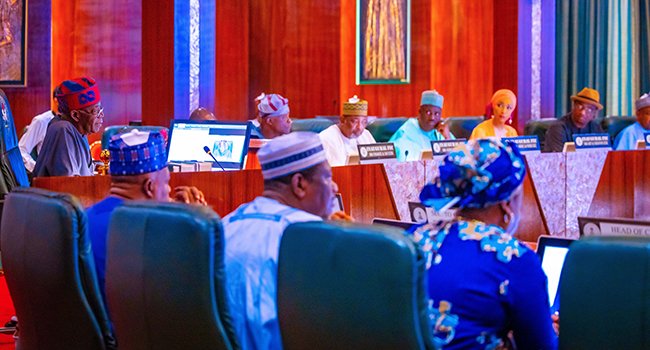The federal government has said that it is no longer in a position to borrow more money but will rather seek to create a stable macroeconomic environment.
The minister of finance and coordinating minister for the economy, Wale Edun disclosed this at the end of the maiden Federal Executive Council (FEC) meeting presided over by President Bola Tinubu at the presidential villa in Abuja on Monday.
He said the goal of the ongoing reforms is to focus on equity and to attract investment.
Edun explained: “Clearly, the federal government is not in a position to borrow at this time. Rather, the emphasis has to be on creating a stable, macroeconomic environment.
“Stable inflation, stable exchange rate. An environment within which people can come and invest and thereby increase production and further grow the economy. Improve and create jobs and reduce poverty.
“So, the aim of all reforms at this time is to focus on what we call equity to focus on investment to attract investment investment by Nigerians. Investment by foreign direct investors and even investment by portfolio investors that want to invest in the financial aspects of the Nigerian economy, such as the stock market, such as the bond market.
“And so that is the plan. That is the expectation and it is that there will not be a reliance on borrowing. Rather, as revenues increase, as the benefit of removing fuel subsidy and the subsidy on the exchange rate, mean more money for government at all levels.
“Because, of course, through oil revenue, the federation earns dollars and if those dollars are feeding through, at let’s say, 700/750 or so naira to one dollar as opposed to 460 where it was before; clearly, that is repairing the finances of government are federal state and local government levels. So, that’s the plan.”
The coordinating minister for the economy, had presented the “Roadmap for the economy,” which was considered by the council.
He added that the council agreed that the economy is not where it should be.
Edun said FEC examined eight priority areas and identified targets to deliver in the next three years.
He affirmed that President Tinubu has charged the ministers to roll out policy and programmes to turn around the economy.
He said: “First he congratulated everybody and emphasised the high expectations of Nigerians and he encouraged us to be bold and courageous and innovative and to act with urgency in delivering a better life to all Nigerians.
“Essentially, we went through an exercise of looking at where things stood regarding the economy, the growth rate, the exchange rate, inflation, unemployment and so on.
“The overriding conclusion is that we’re not where we should be and we also examined the President’s eight-point agenda, that is, the eight priority areas for moving the Nigerian economy forward and for delivering to Nigerians and those are basically food security; ending poverty, economic growth and job creation, access to capital, particularly consumer credit, inclusivity in all its dimensions, particularly as regards youths and women, improving security, improving the playing field on which people and particularly companies operate, rule of law, and of course, fighting corruption.
“It is around those matrix that the plans and the targets of what will be delivered in the next three years or so were identified, discussed and inputs were given by various ministers and we’ll now go away with the marching order to refine further the targets in particular and within weeks to start rolling out policies and programmes to turn around the economy and make things better for all Nigerians.
“That really is the substance of what the discussions was all about.”
